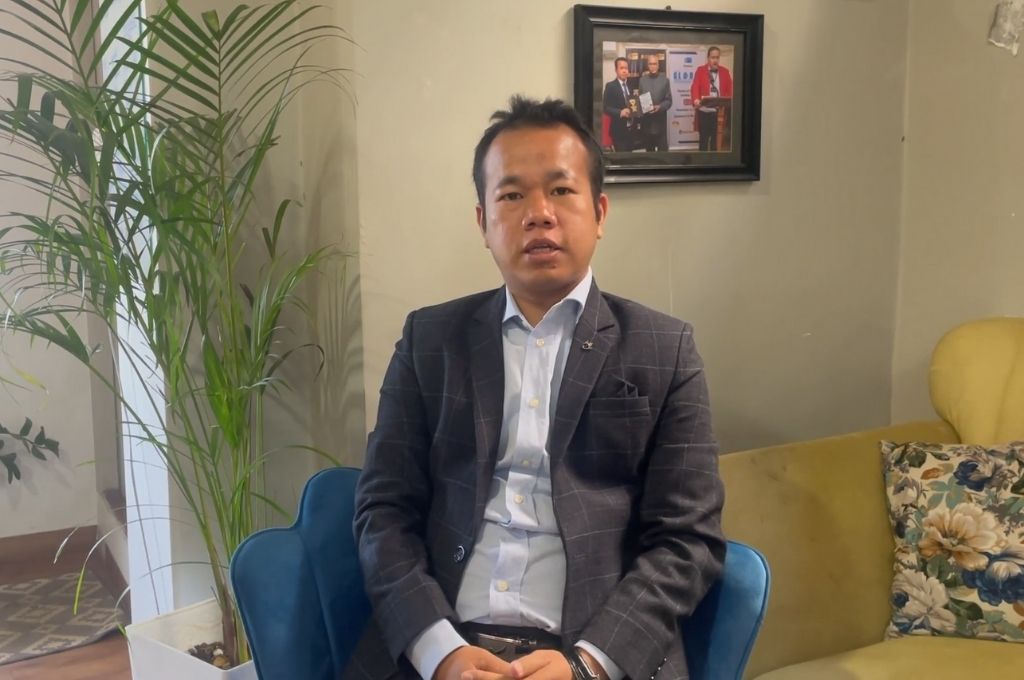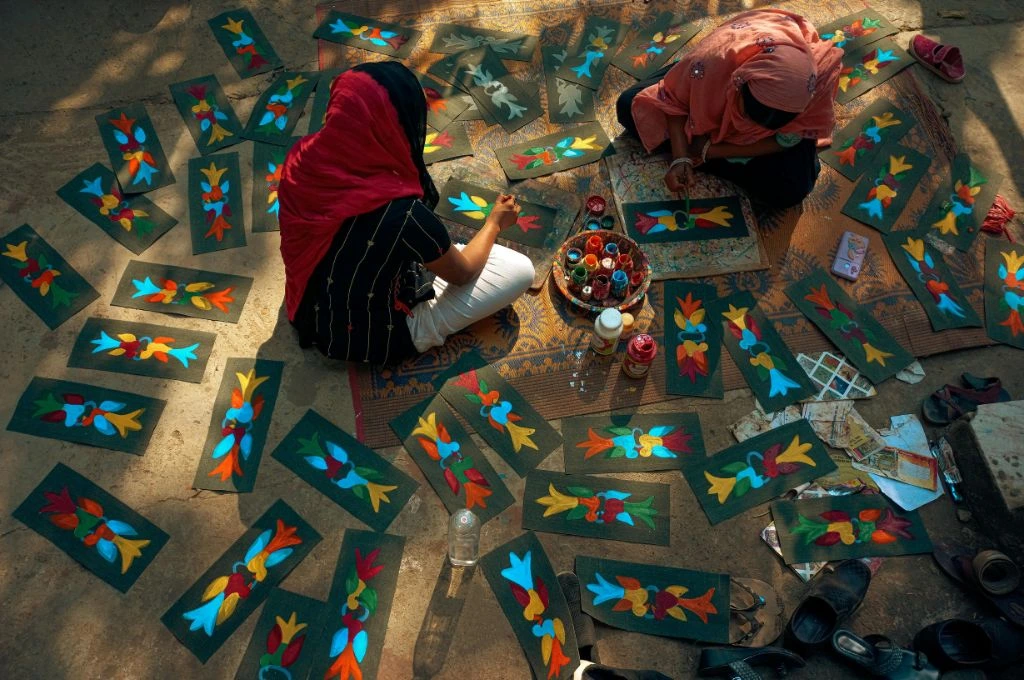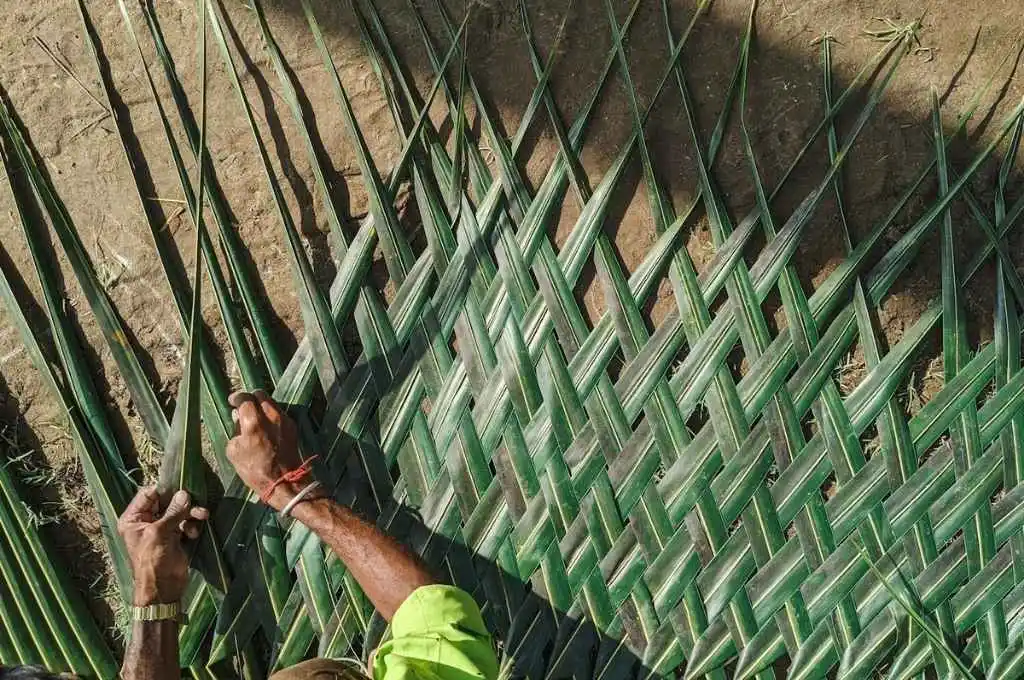In the development sector, organisations are usually started to fill a perceived gap or in response to social issues. However, while such organisations may be passionate about the cause they are serving, they often lack the resources and technical knowledge needed for organisational development, which is essential to fulfilling their mission. In fact, without an organisational structure, formal systems, processes, and policies, the day-to-day management of an organisation can be all-consuming, which is detrimental to the achievement of its goal. This was also the case with Kranti, a Pune-based nonprofit that works with Adivasis and De-notified and Nomadic Tribes (DNT/NT). This case study thus looks at how the establishment of formal policies, processes, and systems helped consolidate the organisation’s structure and sparked a significant transformation.
Kranti was set up in 2010 by Sunita Bhosale to work on various issues related to violence, land rights, education, health, and skill development faced by the Pardhi tribe, an Adivasi community that is discriminated against on grounds of social identity and cultural practices. Initially, Kranti only worked with the Pardhi community, to which Sunita belongs as well. Over time, they also started working with other groups living in remote areas, including Adivasi and DNT/NT communities. The core areas of focus for the organisation include education, gender and caste-based discrimination and violence, health, police brutality, women’s empowerment, atrocities, entitlements, social welfare schemes, and citizenship.
As an organisation led by a woman belonging to a De-notified tribe, Kranti had limited access to resources. As a result, Kranti was able to do very little in the way of organisational development in its first decade. Sunita had registered it as a nonprofit but did not know much about accounting, budgeting, programming, and other governance-related work. During this time, they had an organisational strength of four—of which two people were working in the field—and they faced great difficulty in raising funds. “We had no sustained sources of funding,” says Sunita, “so we had to rely on individual donations of up to INR 5,000 to cover costs.” Later on, Sunita also learned about fellowships provided by Dalit Foundation, CORO, ECONET, ActionAid, and SWISSAID and began to use this fellowship money to pay the staff.
This state of affairs continued until 2019. By this time, they were working in 10 villages in two blocks of Pune and had realised that to scale their work, they needed more staff, including accountants and documentation and fundraising officers. Then, a person who was familiar with Kranti’s work put them in touch with the nonprofit Jan Sahas. This led to Kranti receiving organisational development support through Jan Sahas’ Grassroots Resilience Institute (GRI), which has had a significant impact on Kranti’s fundraising abilities, operations, and reach.
The organisation’s annual budget during its first decade was INR 1–1.5 lakh. This has increased by almost 9x—their budget for the current 1.5-year period is INR 13 lakh. In addition, its organisational strength has grown approximately 8x, from four to 31. All these changes have also broadened their impact, which has more than doubled. Up until 2019, Kranti worked with approximately 1,200 families, but as of 2024, its work covers 3,000 households across 15 villages in Pune district and five villages in Ahmednagar district.
Behind these quantifiable changes are a host of transformations resulting from extensive organisational development efforts.
What changed?
1. Capacity building and connecting with other nonprofits
Kranti had several needs that required attention, but one of their most critical requirements was staff capacity development. The organisation operates in remote areas where skilled professionals are scarce, but with the opportunity for organisational development, Kranti was able to enhance its staff’s work efficiency, skills, knowledge, and leadership qualities.
Priyanka Jadhav, who handles documentation and fundraising at Kranti, says, “GRI’s intervention also involved monitoring and evaluation (M&E) exercises, fostering connections between Kranti and other organisations for funds, mentorship, and Kranti’s capacity development. For example, they put us in touch with other organisations such as Bridgespan that could help us make a 10–15-year plan. They also introduced us to SEWA, where we were assigned a mentor who works with us on skill development and identifying challenges.”
Kranti was thus able to tap into a network of nonprofits where they can start a dialogue on how to approach social issues, as well as certain aspects related to capacity building such as writing proposals and maintaining financial records.
2. Hiring more people
Funding also helped them hire more people. One of the first people Kranti hired was Priyanka. Sunita says, “Priyanka and I have known each other for a long time, almost 15 years. When she was getting her PhD, she expressed interest in serving the community rather than in getting a regular job.” After receiving the grant money, Kranti was able to hire Priyanka as well as an accountant.
Sunita says that having people who were university-educated and could communicate in English helped broaden Kranti’s donor outreach. “Through Priyanka, we got the kind of know-how we needed for proposals or English translation.” Having all these new skill sets on board has helped them reach a level where they are able to fundraise effectively with other organisations, such as Forbes Foundation and Azim Premji Foundation.
Their work is also happening in a more streamlined manner now. “At first, a lot of our programming was haphazard. In addition, while equal opportunity and non-discrimination are organisational values at Kranti, we only instituted policies for them after receiving support for organisational development.” Kranti has formulated 12 policies, including POSH, finance, equal opportunity, and code of conduct. Although the policies are still being iterated on, the institution of a basic framework has helped bring transparency and a clearer sense of the organisation’s stance on certain issues.
3. Enhanced financial control
With improved financial management and the utilisation of accounting software, Kranti now has better control and visibility over their finances. Sunita reflects on the previous state of financing, “We didn’t know about the rules and regulations around how much money we could keep with us as cash or in cheques.” There were also no established procedures or due processes in place concerning the purchase of items by staff.
Hiring an accountant and instituting a finance policy has paid off and helped in improving resource allocation. Priyanka says, “Earlier, everyone would just go out in the field and buy whatever they thought was needed without obtaining quotations first or doing price comparisons. Now that the finance policy has been implemented, there is greater thought put into how and where money is spent.”
4. Improved programme planning
The financial stability and enhanced record-keeping have enabled Kranti to engage in more thorough programme planning. Sunita says, “Now, we are able to allocate resources strategically, set clear objectives, and measure impact more effectively.” In addition, there is a structured plan for which programmes are to be conducted when, ensuring the intended outcome of the organisation’s work is measurable. Last year, for instance, Kranti succeeded in registering 1,000 DNT/NT and Adivasi people to the voter list and enabled more than 500 people to acquire caste certificates.
Having an office has also been useful for planning, holding meetings, and inculcating the atmosphere of an institution. For many years, before they had an office, Kranti operated out of Sunita’s home, and so this has been one of the most positive changes for her. “Besides being a place where we can all gather to discuss programme implementation, the office is where we do our monthly meeting in which we discuss what’s going on currently and our plans for the future.” Since the office space is where the entire team—including volunteers, ground teams, and management—meets, it lends to the feeling of being part of an institution. Kranti also has a website and a logo now, which have contributed to instilling a sense of organisational identity.

Challenges along the way
“Breaking old habits and forming new ones is always hard,” says Priyanka. This holds true for both the permanent staff as well as the resource persons that Kranti is associated with. For instance, although the new finance policy has helped account for any money being spent, Priyanka acknowledges that the processes have been an additional burden on the staff.
Since there are hiring policies in place, the resource persons being engaged for a specific training programme are being asked for a CV. In addition, they are required to produce a plan for the activities they wish to undertake, as well as a report once the activities are completed. “This is jarring for the people we have engaged before, as they don’t understand why we are suddenly asking them for all this extra documentation,” Priyanka adds. Since resource persons are hired based on educational experience and qualifications, it means more vetting work for the staff.
To mitigate these challenges, Kranti conducted training sessions with the staff, explaining the importance of these policies and how they contribute to the overall efficiency and effectiveness of organisational programmes. Alongside clear communication and training, which helped them understand the rationale behind the policies, regular monitoring and feedback mechanisms were put in place to ensure that the staff were adhering to the policies and to help address any challenges that arose during implementation.
Advice to grassroots nonprofits
1. Understand the importance of formal processes
Organisations can often fall into the trap of believing that only the work being carried out on the ground is important, thus glossing over the importance of organisational structures, policies, and documentation. Sunita says, “We know 10–15 nonprofits in Maharashtra that do great work on the ground with Dalit, Bahujan, and Adivasi (DBA) or DNT/NT communities but do not know the first thing about the importance of filing taxes, having your 80(G) certificate, and audit reports.” This hinders their ability to tap into funding since some degree of documentation is a prerequisite to applying for and receiving grants.
On the flip side, however, such information is hard to come by for grassroots organisations, especially those that are operating in remote areas. “No one told us either about certifications, legal compliances, plans and reports, and having a vision/mission,” remarks Sunita. This is why developing as an organisation was so fundamental to Kranti’s work progressing to the next stage.
2. Learn how to separate and take due credit for your organisation’s work
Sunita and Priyanka relate something that happened with Kranti a few times in their initial years. Sunita says, “We were partnering with organisations that would award us fellowships of INR 5,000, INR 8,000, and so on. Over time, however, I realised that some of these nonprofits were passing off our work as theirs and making us out to be an implementing organisation. So, they were being awarded grants in crores of rupees while only a fraction of that amount made it to us.”
Thus, Priyanka and Sunita believe that grassroots nonprofits should be mindful of how their work is being represented, especially since representation impacts the perception of the organisation among stakeholders, including potential donors and partners as well as the community. Ensuring the organisation’s work is well represented can also aid in recruiting volunteers and staff members.
Advice to funders
1. Fund grassroots organisations directly
Sunita says that in their first 12 years, even direct appeals to support channels bore little fruit. In part, this is because of well-established funding patterns followed by other players in the ecosystem, such as funders and grantmaking organisations. Big funders usually give money to grantmaking organisations that distribute funds to grassroots and implementing organisations. Since fundraising requires skill, resources, and networking—all of which grassroots organisations cannot always tap into—it is challenging for most organisations working on the ground to connect with funders.
Since funders have resources at their disposal, they may be better positioned to seek information on grassroots nonprofits working in the thematic areas they are interested in supporting. This is a complex exercise, but one that can potentially add value to existing funding models.
2. Focus on commitment and potential
According to Priyanka, many funders have mandates that prevent them from funding smaller organisations—for example, funding only those organisations that have a turnover of INR 50 lakh to INR 1 crore. “However, grassroots organisations sometimes do very impactful work even within budgets as low as INR 2 lakh. So, instead of assessing parameters such as annual budgets, a fairer method would be to look at how invested an organisation is in the work they do and how much better they could get once organisational structures are in place.” Funding developing organisations is always crucial, she adds. “Bigger nonprofits can survive because they already have resources at their disposal, but that is not the case for grassroots nonprofits.”
Grassroots organisations work directly with communities and the outcomes of this work are often clear. However, there are several barriers between nonprofits and funders, not least of which is a lack of exchange of information.
What’s next for Kranti?
Kranti’s efforts towards developing as an organisation—by hiring personnel who could fundraise, building team members’ capabilities, and improving on reporting practices—had a ripple on their visibility to funders, as evidenced by the 9x increase in their budget. The organisation’s future plans, which involves extending their work to the entirety of Pune and Ahmednagar districts, would require them to continue on this path. “Right now, we work in 20 villages and cover 3,000 households. To expand the same work that we’re doing to 100–150 villages, we will need to secure five to six grants over the next two years,” says Sunita.
Ultimately, Kranti’s vision is also to make the villages that they work in independent. Sunita elaborates, “We want the situation to be such that when we’ve worked in a village for five years, we never have to work in it again and the communities themselves are capable of identifying and resolving any challenges that come up in the future.” This would help serve Kranti’s mission of ending the historical exclusion and stigmatisation of de-notified tribes, preventing violence against women, and ensuring the upliftment of marginalised groups.
—
About Priyanka and Sunita
Priyanka Jadhav is a social activist and scholar currently working with Kranti as a documentation and fundraising officer. Priyanka has a PhD from Tata Institute of Social Sciences, Mumbai, and is the first woman from the Kaikadi tribe (a de-notified tribe) to have completed a PhD in Maharashtra. Priyanka’s MPhil and PhD research projects looked into the changing livelihood practices of the Masanjogi community and the lives of Pardhi women respectively. Through her research, she gained insights into the complexities of marginalised communities’ lives and the urgent need for their inclusion in policy frameworks.
Sunita Bhosale is an activist and a social worker who belongs to the Pardhi tribe of Maharashtra. After working with various organisations at the grassroots level, she realised the need to establish an organisation that would serve marginalised communities in her area. In 2010, she founded Kranti to work on issues related to education, violence, entitlement, and social welfare schemes. Sunita recently returned to and successfully graduated from college, fulfilling a goal she was unable to earlier due to various challenges.
—
An earlier version of this article stated that grassroots organisations are started to fill a perceived gap or in response to social issues. This was updated on March 22, 2024, to reflect that all organisations in the development sector are started with this aim and face similar challenges in the absence of organisational development.
This article was updated on April 5, 2024, to reflect that as an organisation led by a woman belonging to a De-notified tribe, Kranti had limited access to resources.
—






